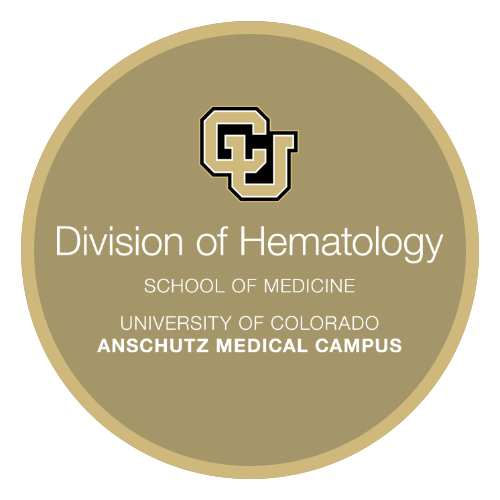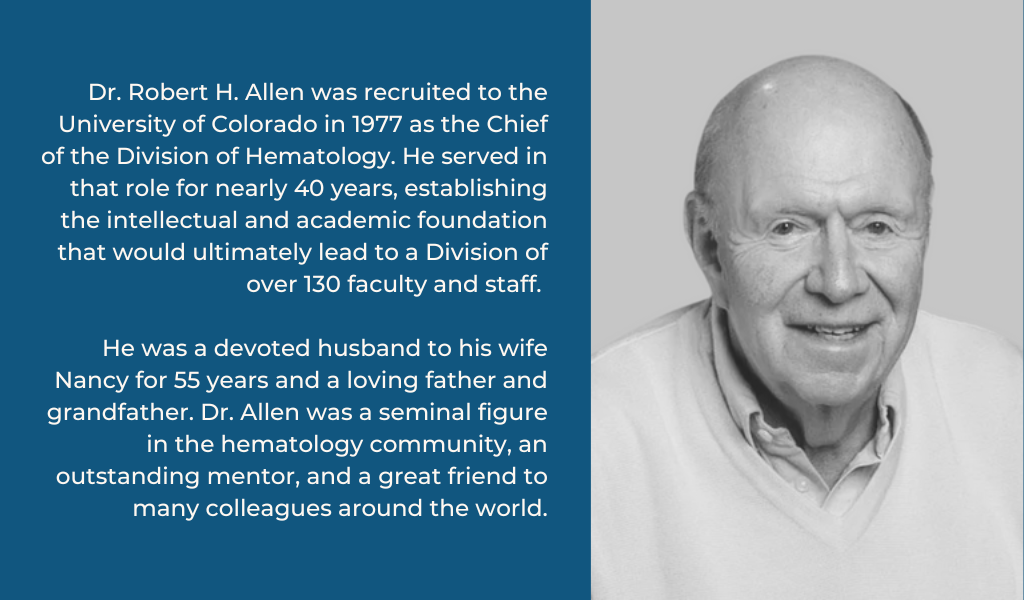Physician-Scientist
As a physician-scientist, Dr. Allen was focused on fundamental aspects of blood cell biology. His work led to major scientific breakthroughs in the biochemistry of Cobalamin (Vitamin B-12) and folate metabolism and deficiency. He published over 200 major scientific papers that led to the creation of blood tests and treatments for diseases related to vitamin deficiency. Of particular note, he discovered the existence of chemical analogs of Vitamin B-12 in human blood. The presence of these analogs produced false results on the tests in use at the time, causing misdiagnosis of sometimes fatal vitamin deficiencies. To address this problem, Dr. Allen performed groundbreaking work in creating a new and more accurate test that accurately measured B12 levels. This became the standard diagnostic test for B12 deficiency in the United States and around the world and was published in a premier article in the New England Journal of Medicine (NEJM, vol 299: p785-792, 1978). This work improved the lives of thousands of patients who are now accurately diagnosed with B12 deficiency as the cause of their anemia. Perhaps even more importantly, this work has saved many patients from death and debilitation from the devastating neurologic effects of B12 deficiency, with many people returning to normal health through the simple and affordable intervention of B12 administration. Dr. Allen also discovered that early formulations of prenatal vitamins were designed in a way that prevented the proper uptake of B-12 and iron. His reformulation, along with the blood tests and treatments discovered in his lab, are still considered the “Gold Standard” for diagnosis and treatment for B-12 and folate deficiencies. Based on his outstanding medical research, Dr. Allen was the recipient of one of the most prestigious honors given to research scientists, the National Institutes of Health MERIT Award.
Philanthropist
Dr. Allen and his wife Nancy were also remarkably generous philanthropic supporters of medical research. Over the course of his tenure, the Allens made donations to the University of Colorado that created four endowed chairs in Hematology. They also helped support the creation of the Robert W. Schrier Chair, an endowed chair held by the Department of Medicine Chair. These chairs provide an enduring testament to the Allens’ vision.
Dr. Allen passed away peacefully at home, surrounded by his family, at the age of 82. He will be deeply missed by all those who were fortunate enough to know him.


